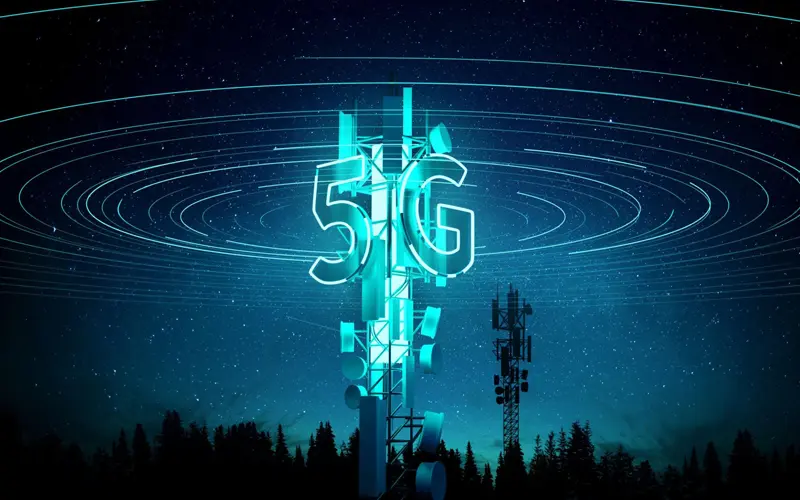As technology continues to advance at a rapid pace, one of the most exciting developments in recent years has been the rollout of 5G networks. With promises of faster speeds, lower latency, and increased connectivity, 5G technology is set to revolutionize various industries and change the way we live, work, and communicate. In this comprehensive article, we will delve into the future of 5G technology, exploring its potential applications, benefits, and the impact it will have on various sectors.
The Evolution of 5G
5G technology builds upon its predecessors, aiming to address the limitations of previous generations and provide a seamless and efficient wireless experience. While 4G focused primarily on improving mobile internet speeds, 5G goes beyond that, offering enhanced capabilities such as massive device connectivity, ultra-low latency, and network slicing for customized services. This evolution will pave the way for innovative applications and services in the future.

Enhanced Mobile Broadband
One of the key advantages of 5G technology is its ability to deliver significantly faster speeds and greater bandwidth compared to 4G networks. This will enable users to enjoy immersive experiences on their mobile devices, including streaming high-quality video content, virtual reality (VR) gaming, and seamless cloud computing. With faster download and upload speeds, the possibilities for mobile applications are endless.
Internet of Things (IoT) and Smart Cities
5G’s real potential lies in its ability to connect and manage a massive number of devices simultaneously. This will be pivotal in the growth of the Internet of Things (IoT), where billions of interconnected devices communicate and share data. From smart homes and smart grids to autonomous vehicles and industrial automation, 5G will create a foundation for the interconnected smart cities of the future, improving efficiency, sustainability, and overall quality of life.
Industry Transformation
5G technology will have a transformative impact on various industries, revolutionizing sectors such as healthcare, manufacturing, transportation, and entertainment. In healthcare, 5G-enabled applications will enable remote surgeries, real-time patient monitoring, and enhanced telemedicine services. In manufacturing, the low latency and high reliability of 5G will facilitate the widespread adoption of automation and robotics. The transportation sector will benefit from enhanced vehicle-to-vehicle communication, paving the way for safer and more efficient autonomous driving. Additionally, the media and entertainment industry will see an explosion of immersive experiences, such as augmented reality (AR) and virtual reality (VR) content.

Edge Computing and Cloud Services
To fully unleash the potential of 5G technology, the adoption of edge computing and cloud services will be crucial. Edge computing, where data processing occurs closer to the source, will reduce latency and enable real-time applications. Cloud services will provide the scalability and flexibility required to handle the massive amounts of data generated by 5G networks. The combination of 5G, edge computing, and cloud services will unlock new possibilities in areas like autonomous systems, real-time analytics, and artificial intelligence (AI).
Security and Privacy Considerations
As with any advanced technology, the widespread adoption of 5G also raises concerns about security and privacy. The increased connectivity and reliance on interconnected devices create potential vulnerabilities that must be addressed. Ensuring robust security measures, implementing encryption protocols, and educating users about best practices will be essential in maintaining the integrity and privacy of 5G networks and the data they transmit.
The Path to 6G
While 5G technology is still being deployed globally, researchers and industry experts have already begun exploring the potential of 6G technology. Anticipated to be even faster, more reliable, and more interconnected than its predecessor, 6G aims to push the boundaries of wireless communication even further. With discussions and early research underway, it’s clear that the evolution of wireless technology will continue beyond 5G.
Conclusion
The future of 5G technology is incredibly promising, with its potential to transform industries, drive innovation, and create new opportunities. From enhanced mobile broadband to IoT connectivity, smart cities, and industry advancements, 5G will revolutionize the way we interact with technology. However, as with any technological advancement, careful attention must be paid to security and privacy considerations. As we embark on this 5G journey, it is vital to foster collaboration between stakeholders, including governments, businesses, and researchers, to maximize the potential of 5G and shape a future that benefits everyone. The future is fast-approaching, and 5G will be at the forefront of this technological revolution. Stay tuned to TechFuturists.net for the latest updates on 5G technology and its transformative impact on our world.






